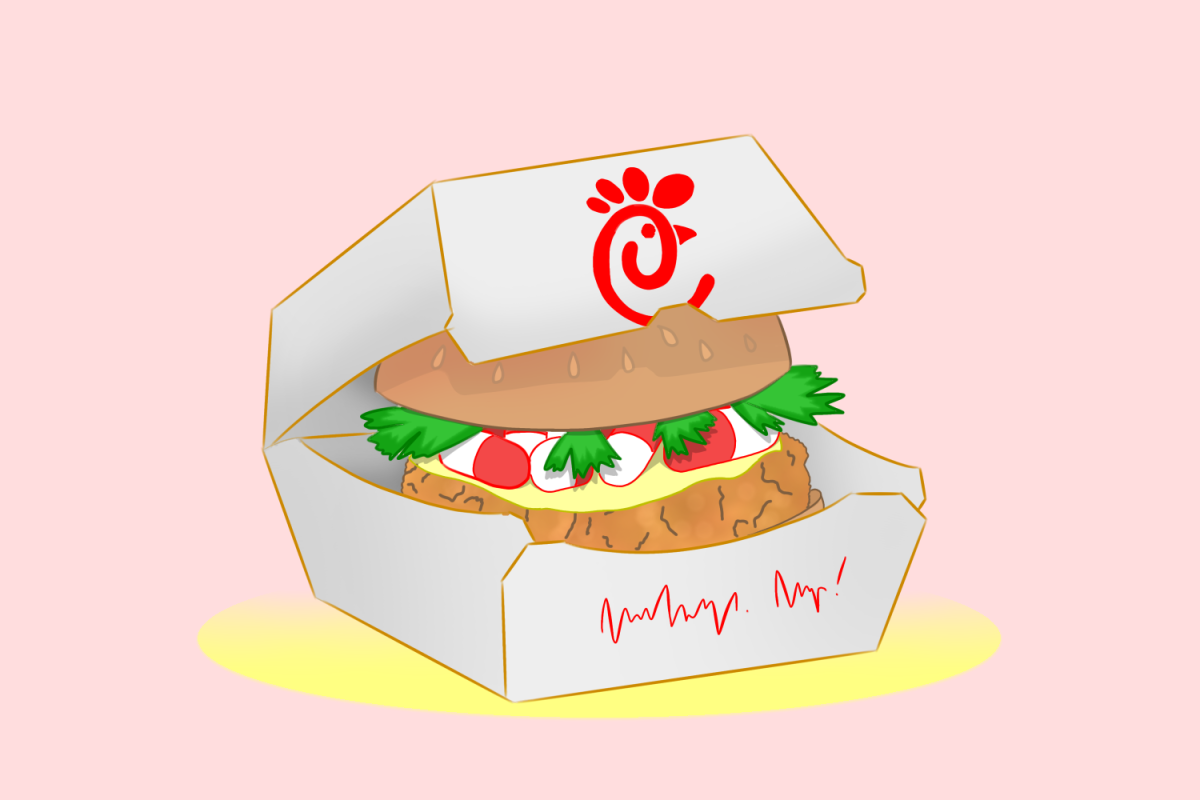Let’s face it: the human population has been increasing at an alarming rate. Scientist predicts that the world population will have reached 9.8 billion by 2050. That means many, many more mouths to feed, and a lot more effort going into producing food.
Already 56 million acres of land are dedicated to animal livestock, yet only four million is dedicated to agricultural produce. This is largely due to cows. It takes between one and a half and two acres of land to feed just one cow. With that much land devoted to such a small supply of product, many question the reasoning behind it.
The answer is simple: people love their meat.
“The whole population isn’t going to go vegan or vegetarian overnight,” said Sara Shayesteh, a Carlmont biotechnology teacher.
But eating meat may very well just be mankind’s downfall. Not only does agricultural livestock waste enormous amounts of food, water, and land that could be used to grow crops, but it also hurts the ozone layer surrounding the planet.
Livestock produces methane, a chemical 30 times more environmentally destructive than carbon dioxide. Because of this, many scientists dedicated years to working on alternate sources of meat. That research eventually went on to become companies such as Beyond Meat and Impossible Foods, which are plant-based alternatives meat options that use genetically modified ingredients to create a more satisfactory taste.
To all accounts, these companies have been generally successful in getting both approvals from the Food and Drug Administration (FDA) and getting their products out on the market. Beyond Meat, a leading company in the industry just made their next step in plant-based gene-altered meat with their 2019 Beyond Burger 2.0 and saw a 70 percent revenue growth last year.
Shayesteh, who believes that finding an alternative meat source is of vital importance, has tried several of these plant-based meat products herself. “I love it; it’s good and satisfying but it doesn’t leave you with that gross heavy feeling after eating meat,” Shayesteh said.
The Impossible Burger 2.0 and the Beyond Burger 2.0, both new and closer replicas of natural beef, have recently hit the market. These products can be found in burger chains such as Carl’s Jr., Burger King, and The Counter.
Although called the “Coke and Pepsi” of GMO plant-based meat by the CEO of Alpha Food Labs, a company which helps launch and market alternative food companies, the overall impact of the Impossible Burger and the Beyond Burger has yet to be substantial in regards to the demand of natural meat.
This opens the door to other options such as lab-grown meat, another promising replacement for standard meats. Lab-grown cultured meat, or “clean meat,” is a generally new idea and is on track to hit the market anytime in the next few years.
Clean meat is made in a lab from harvested cultured cells. Scientists have the cells multiply and differentiate until they turn into muscle fibers or tissues.
Carlmont biotechnology teacher Tyler Kochel, Ph.D., said that “public perception” will be one of the biggest challenges faced for clean meat.
The topic of lab-produced meat or “clean meat,” as many scientists call it, has always been a controversial topic.
As far as government views go, companies working in the cultured meat industry, like Memphis Meats, don’t expect much slowdown from the FDA.
“I think the FDA will look at the evidence and from everything I’ve heard and seen, it’s safe, and that’s what they’re looking for: a safe effective way to make protein without so much waste,” Kochel said.
As of now, the specifics about the regulations for this new and upcoming technology hasn’t been set in stone yet. This may cause some slowdown in the public release of cultured meat, but progress is still being made, as biotechnology companies race to put their products out on the market.
One of the biggest challenges that cultured meat companies like Memphis Meats will face is the cost of production. Although the technology to produce lab-grown meat from harvested animal cells exist, the price behind the “meat of the future” is still far too much to compete with reasonable consumer rates. According to Forbes Magazine, last year, a pound of Memphis Meat’s cultured meat costs $2,400 to produce. This is still a massive feat considering that just six years ago, in 2013, close to $300,000 went into producing a pound of cultured meat.
The main flaw in the plan to replace meat with cultured meat or cloned meat is public acceptance. “It’s all about getting over those fundamental beliefs people hold,” Kochel said.
Although the public release of lab-grown meat could be anytime in the next few years, public acceptance is estimated to take much longer.
Speaking about the role of age in public opinion, Shayesteh said, “It’s really difficult to change peoples’ lifestyles. If you ask my parents or my grandparents about eating clean meat, I don’t think they would even try it, whereas I would totally try it.”
If Shayesteh is indeed correct, the ultimate impact of lab-grown meat relies on the youth and the generations to follow.
Even so, people, today will have some time to adjust to the idea of cell-grown meat as the industries products have yet to have hit the market.
Another big factor in societal views depends on the reaction of the livestock industry.
“The big food producers have a lot of power where their products are placed and where their competitor’s products are placed, so there’s going to be a lot of that going on behind the scenes,” Kochel said.
This could be an issue in regards to convincing the public to buy these new meat options.
“The whole meat industry has an issue with putting alternatives in the meat aisles. They don’t want it in the same section,” Shayesteh said.
Many people will already be skeptical of clean meat for either ethical, religious, or health-related reasons. Putting cultured meat in an alternative meat aisle, or even its own section entirely could send sales plummeting.
On the other hand, alternative meats being placed adjacent to standard meats could be the spark the cultured meat industry needs to start changing public perception.
For now, clean meat startups will focus their attention on marketing, cheaper production, and finding an efficient way to feed the planet and save the environment.
“I think [cultured meat] will potentially help the huge climate problem that we have and create a whole lifestyle change. The way that people think about how to eat a balanced meal — I think that whole idea could change,” Shayesteh said.








